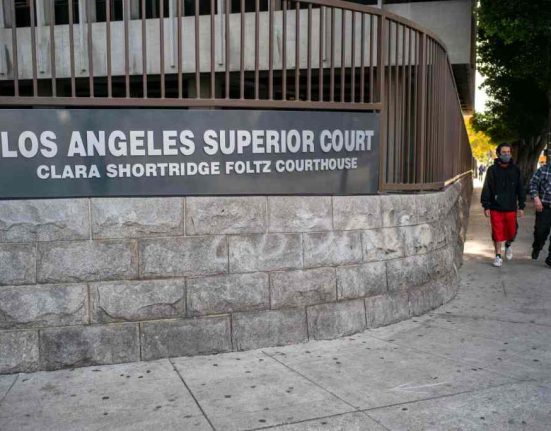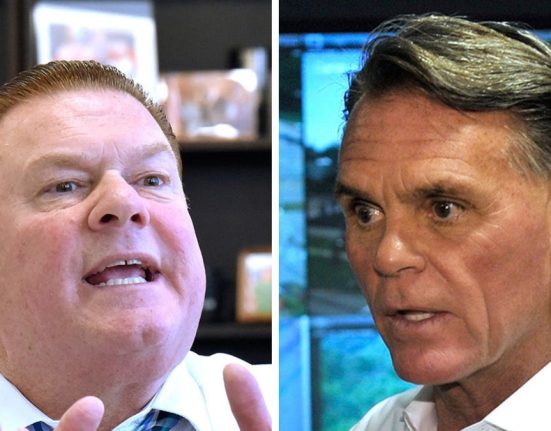CHANCELLOR Rachel Reeves may step in to overrule the Supreme Court’s decision relating to the £44billion car finance scandal.
The Supreme Court is set to decide next Friday whether motor finance providers should compensate customers over undisclosed broker commission arrangements.
But, the Government is looking at new laws to limit compensation claims against motor finance providers and making them less exposed to the scandal, according to The Guardian.
These laws would set clear rules on disclosing broker commission fees and could even apply retroactively to existing cases.
If passed, lenders like Lloyds, Santander, Barclays, and Close Brothers could face lower payouts.
The move aims to prevent the scandal from spreading to other financial products beyond car loans.
The move would be an exceptional step by the Treasury, which previously attempted to influence the Supreme Court proceedings in January.
It’s believed Government officials have been discussing the practicalities with both the Ministry of Justice and the Department for Business and Trade.
In October, the Court of Appeal ruled that motor finance firms broke the law by not telling borrowers about broker commission terms.
This decision could lead to £44billion in compensation for millions of people.
Motor finance companies argue they believed their practices followed the rules but say the ruling requires much more transparency.
Close Brothers and FirstRand Bank appealed the decision, and the Supreme Court heard the case in April.
The court will now announce its final decision on motor finance commissions on August 1.
The Financing and Leasing Association, which represents motor finance companies, warns that if the Court of Appeal ruling is upheld, it could harm the motor finance market.
They say it could lead to less lending, higher borrowing costs, and even company closures.
The Government rarely steps in on compensation cases, but the Treasury is worried this scandal could scare off investors and hurt UK businesses.
There are also fears that a huge compensation bill could damage the industry.
Back in 2013, the coalition Government pushed through the Jobseekers (Back to Work Schemes) Act to “protect the national economy” from a £130million payout.
A Treasury spokesperson said they want a fair decision that gives consumers proper compensation for their losses.
They added: “We want to see a balanced judgment that delivers compensation proportionate to losses that consumers have suffered and allows the motor finance sector to continue supporting millions of motorists to own vehicles.
“It is now appropriate to let the appeals process run its course.”
Paul Carlier, the whistleblower who first exposed the scheme in 2016, has accused the Treasury of acting dishonestly to protect motor finance firms at the expense of millions of customers.
He claims the FCA and Ombudsman have already covered up the scandal in previous years, depriving consumers of billions in redress.
Andy Agathangelou, founder of consumer advocacy group Transparency Task Force said: “This is at least the second time the Chancellor of the Exchequer has hoped to intervene, or should I say interfere, with the judicial process surrounding the car finance scandal.
“It’s not a good look for her, because she seems happy to in effect take money out of the pockets of innocent, harmed consumers, and put it in the pockets of banks and car finance companies that have broken the law.”
The Financial Ombudsman Service is struggling with a massive spike in complaints about commission practices, now totalling over 60,000 – triple the number since May 2024.
The growing scandal could rival the infamous Payment Protection Insurance (PPI) debacle.
In March, the Financial Conduct Authority confirmed it had been granted permission to intervene in the case and had submitted its arguments to the Court.
Should the Supreme Court rule that motor finance customers have suffered losses as a result of widespread failings by firms, the FCA is expected to consult on the introduction of an industry-wide compensation scheme.
Under a redress scheme, firms would need to figure out if their mistakes caused customers to lose money.
If they did, the firms would have to pay the right amount of compensation.
The FCA would create rules for firms to follow and make sure they stick to them.
This scheme would make things easier for customers compared to making a formal complaint.
While waiting for news on the redress scheme, customers can still make a claim directly, but the FCA has advised against using claims management companies or law firms to avoid unnecessary fees.
WHAT’S HAPPENING AND WHO’S AFFECTED?
By James Flanders, Chief Consumer Reporter
What is being investigated?
The Financial Conduct Authority (FCA) launched an investigation last year into whether motorists were unknowingly overcharged when they took out car loans.
The investigation by the City watchdog focuses on past practices where banks allowed car dealerships and brokers to set their own interest rates on loans.
Under a now-banned discretionary commission arrangement (DCA), dealerships and brokers had a financial incentive to charge higher interest rates, as their commission increased proportionally.
However, many customers were unaware of this practice.
A landmark ruling in October 2024, deemed it unlawful for car dealers, acting as brokers, to receive commissions from lenders without obtaining the customer’s consent.
This applied to both discretionary commission arrangements (DCAs), where dealers set interest rates, and non-discretionary commissions.
The Supreme Court is now preparing to rule on whether lenders should be held responsible for compensating drivers.
Who is eligible for compensation?
There are two criteria you must meet to have a chance at receiving compensation.
First, you must be complaining about a finance deal on a motor vehicle (including cars, vans, motorbikes, and motorhomes) that was agreed upon before January 28, 2021.
Second, you must have bought the vehicle through a mechanism like Personal Contract Purchase (PCP) or Hire Purchase (HP), which make up the majority of finance deals and mean you own the vehicle at the end of the agreement.
Drivers who leased a car through a Personal Contract Hire, where you give the car back at the end of the lease, are not eligible.
According to the financial regulator, on a typical £10,000 motor finance agreement, discretionary commission arrangements could have caused customers to pay an additional £1,100 in interest over a four-year term.
The FCA extended the deadline for lenders to respond to complaints, meaning borrowers whose lenders received other forms of commission may now also be eligible for compensation.
How can I make a claim now?
Consumer finance website MoneySavingExpert.com offers an email template to help you complain to your finance provider.
You can download this by visiting moneysavingexpert.com/reclaim/reclaim-car-finance.
Alternatively, you can complain directly without using the template.
It’s crucial for anyone who took out car finance to file a claim, even if a previous claim was denied.
In your complaint, ask whether you were overcharged due to your broker receiving a commission and request the company to rectify this if it occurred.
If you’re unsatisfied with the company’s response, you can escalate your complaint to the Financial Ombudsman Service (FOS) at no cost.
You have until July 29, 2026, or up to 15 months from the date of the company’s final response letter, whichever is longer.
Avoid using a claims management firm, as they will take a portion of any successful claim.
LENDERS SET ASIDE COMPO CASH
CUSTOMERS of several major high street banks who were mis-sold car finance could be in line to receive thousands of pounds in redress.
In March, Lloyds Banking Group revealed it had set aside another £700million for potential compensation relating to motor finance commission arrangements this morning.
The bank said the provision – taken in the fourth quarter, and adding to the £450million provision taken last year – was in light of a court judgment on the issue.
Barclays has additionally allocated £90million in response to the car finance scandal, while Santander revealed last year that it had earmarked £295million for potential payouts.
Meanwhile, Close Brothers announced it anticipates setting aside up to £165million in the first half of the year to address potential legal and compensation costs arising from the ongoing review into car loan commissions.








